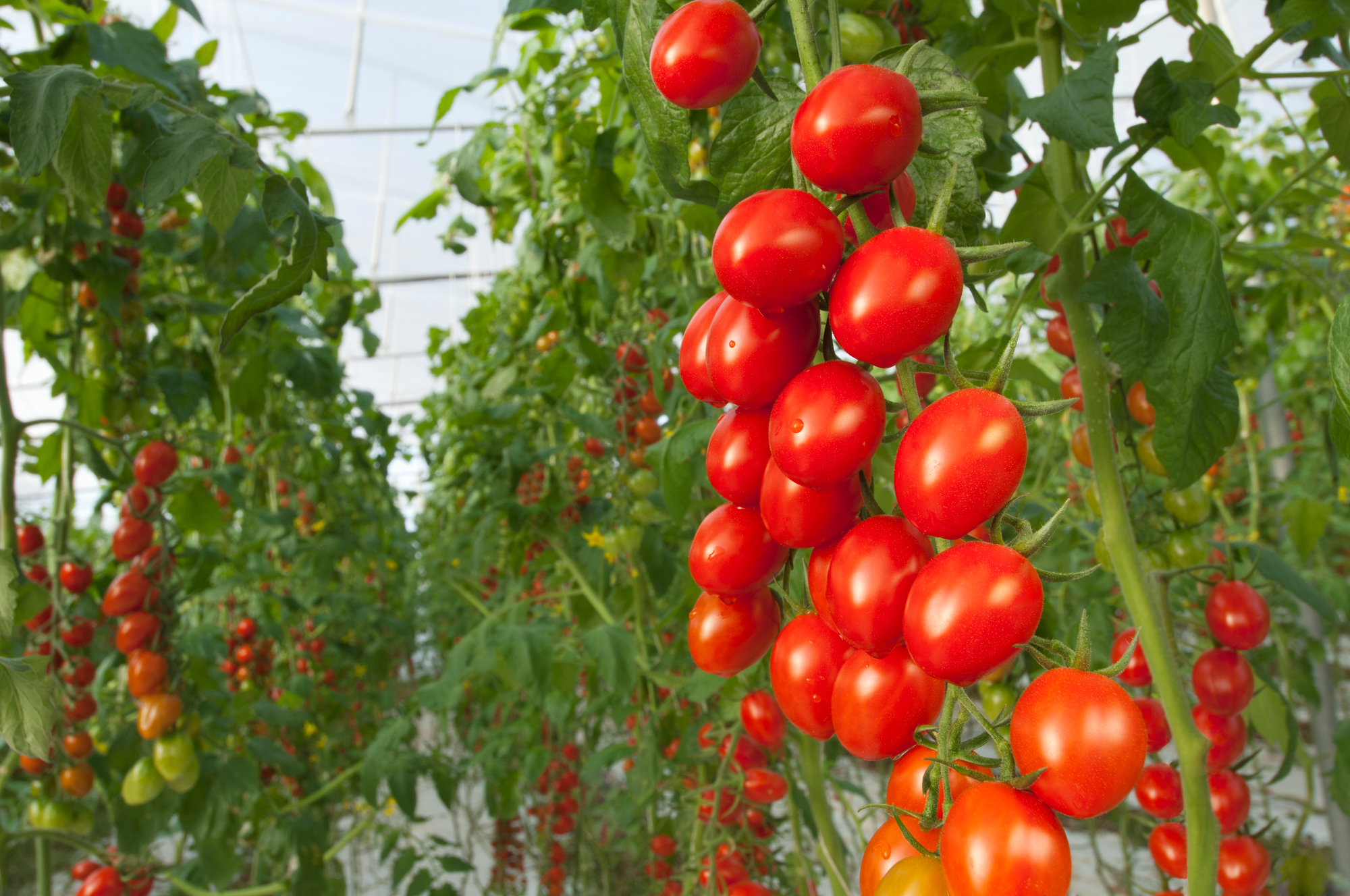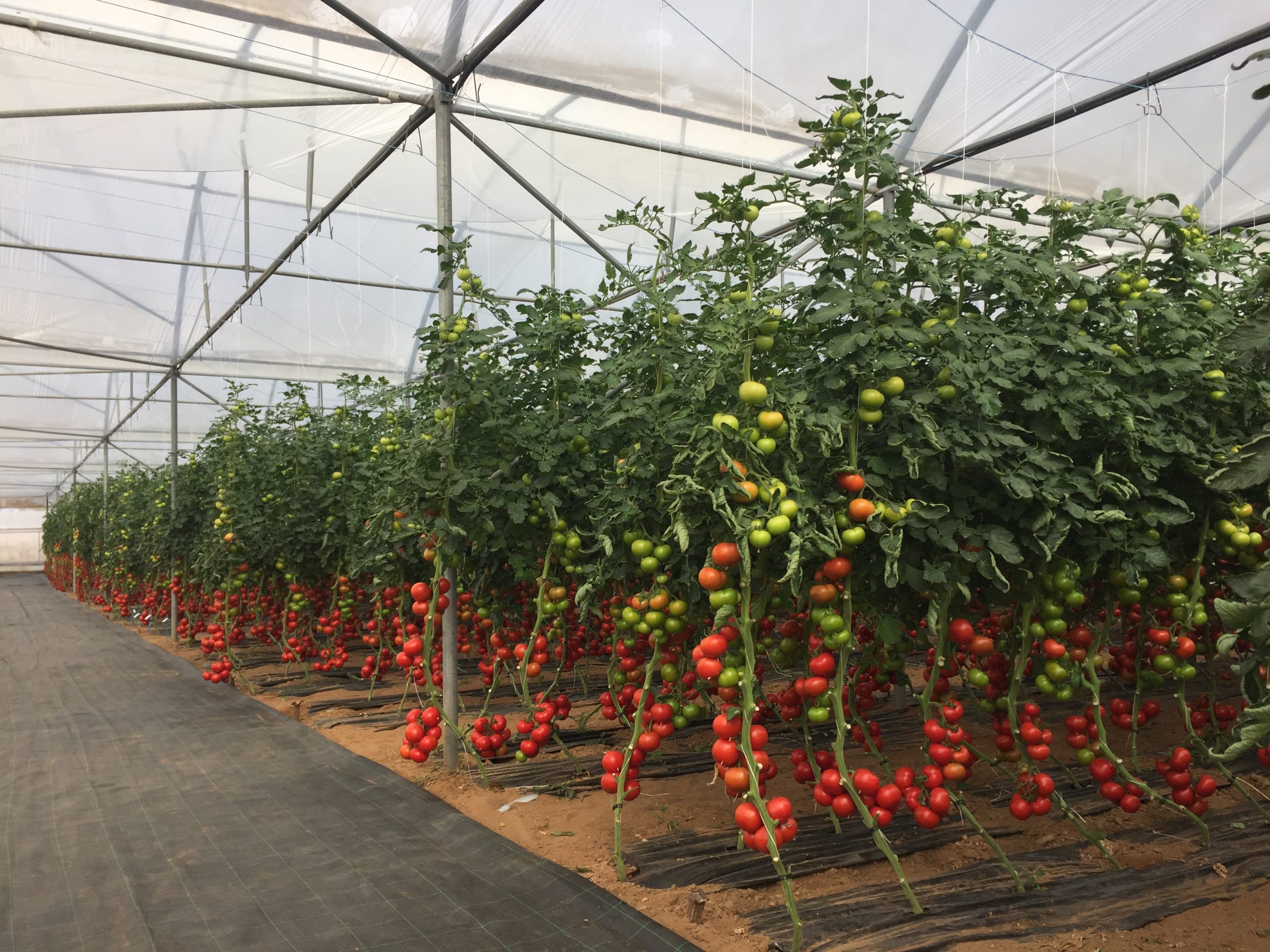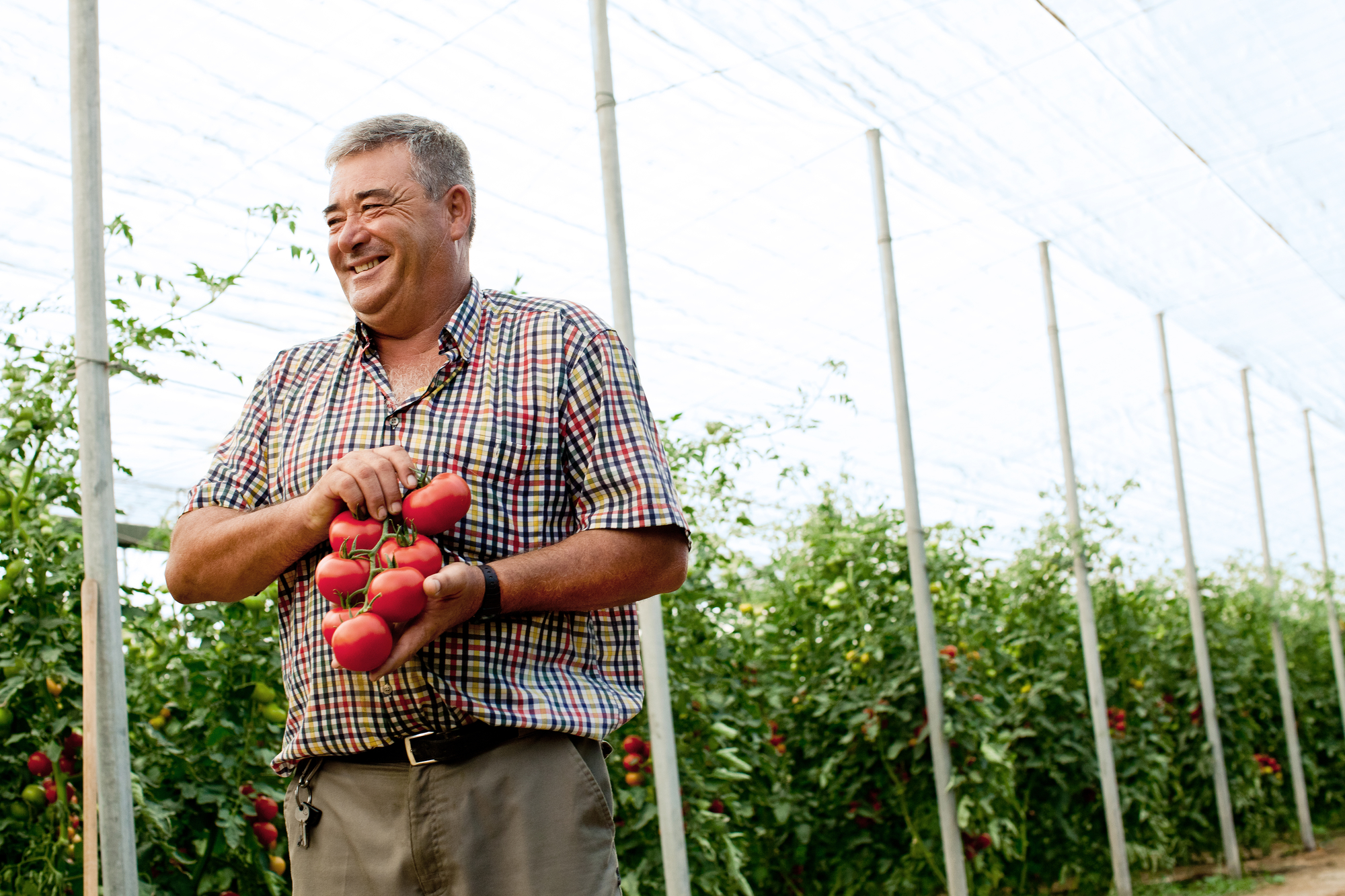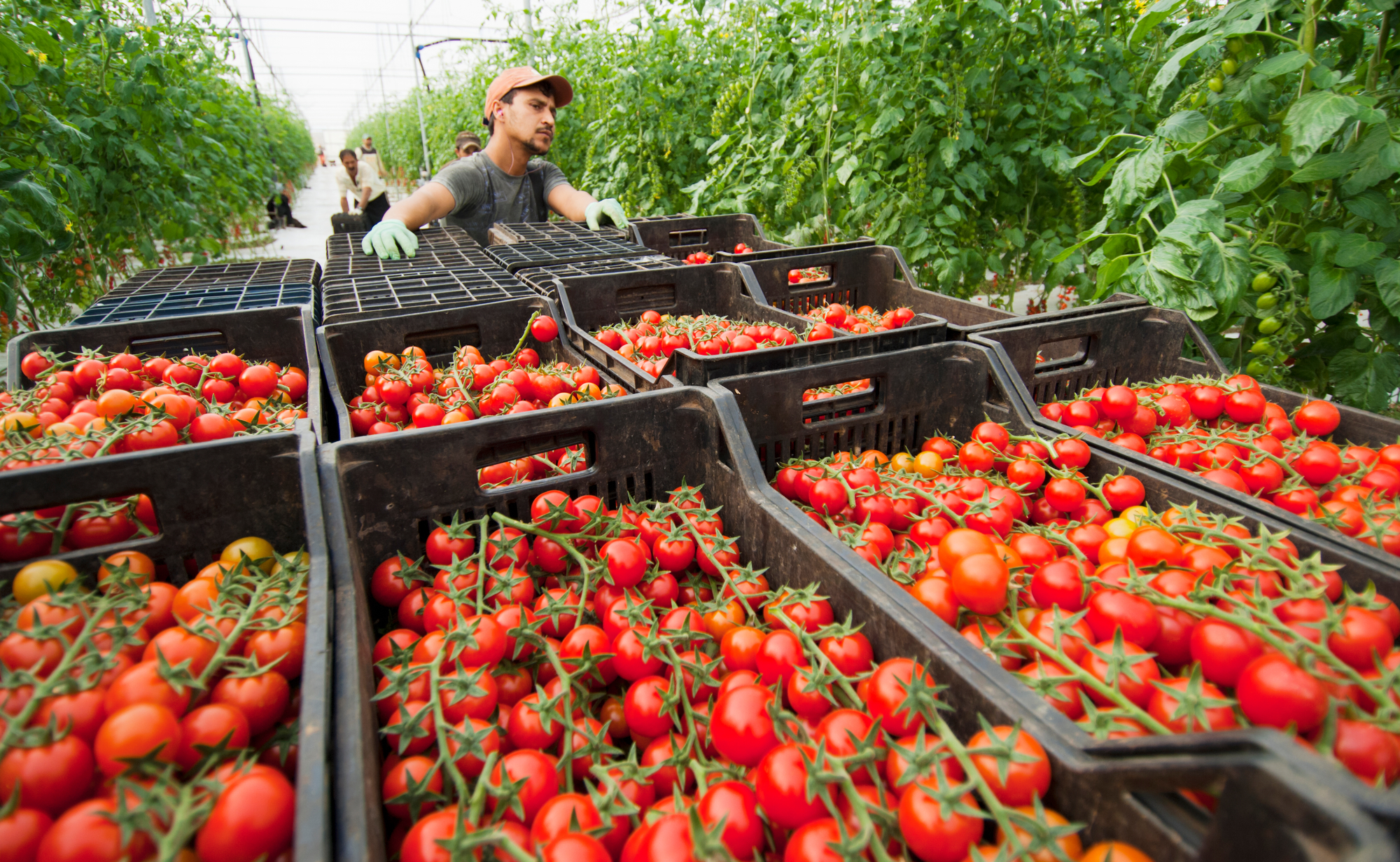
Oct 15, 2021
Bayer’s vegetable seed leader sees ‘shift toward organic preference’
Organic seeds are not as niche a market as some might suspect.
The acres qualified for certified-organic agriculture are a thin fraction of the total acreage that’s cultivated. Commercial, certified-organic growers in the U.S. may use untreated, non-organic seeds when organic seeds aren’t available in the quality, quantity or form needed.
And yet, the demand for organic seed continues to grow, attracting the attention of ag giant Bayer, which on Sept. 22 announced plans to expand its vegetable seed offerings to include organically produced vegetable seeds. The launch will focus on certified organic production in three key crops for the greenhouse and glasshouse market: tomato, sweet pepper and cucumber.
In announcing the new initiative, Bayer quoted estimates from the International Federation of Organic Agriculture Movements (IFOAM) that valued the global organic food seeds market at $355 million in 2020 with growth expected.
To better understand the changes in the markets, Organic Grower recently caught up with Bayer’s Inici Dannenberg.
Organic Grower: Tell me a bit about yourself and professional background.

Inci Dannenberg: Thanks for the opportunity to connect! I am president of Bayer’s Vegetable Seeds business within our Crop Science division. Next year, I will have been with Bayer for 30 years. In that time, I’ve had the opportunity to hold a variety of positions within the company including marketing, strategy, sales leadership and commercial operations. Before my current role, I served as Head of Vegetable Seeds Global Strategic Marketing and previous to that I was Senior VP of North America Business Strategy for our Crop Science organization with a focus on the successful integration of our newly-expanded North America commercial organization following the acquisition of Monsanto.
Because I’ve had an opportunity to build my career at Bayer, I am passionate and committed to talent development and mentoring professionals, both inside Bayer and externally. I believe it’s very important for all of us to mentor employees as they grow their careers – we all play an important role in their successes. I am also a proud Kansas State University alumni! My husband and I have three grown sons, and we live in St. Louis, Missouri.
OG: How did Bayer get to this point? What moves a company of Bayer’s caliber to get into organics?
ID: There are two reasons – our vision and our customers. At Bayer, our vision is “Health for all, Hunger for none” and our vegetable seeds business plays an important role in advancing health and nutrition. We see an increase in consumer demand for organic produce in some key markets continuing to grow at a faster rate than demand for conventional produce. To promote improved health through fruit and vegetable consumption, we must address the preferences of a variety of consumers, and help growers produce what those consumers want to buy, eat and feed their families.
Our customers who grow organic produce rely on high-quality seeds, and they’ve asked us to help them by offering a range of certified organic Seminis and De Ruiter brand seeds. We’ve seen the shift toward organic preference in many markets and know the need is there. As every organic grower knows from experience, it takes time to go through the conversion process to develop and implement the systems and processes to obtain organic certification. For us, it was also critical to make certain that we could offer the same high standards in seed quality for organic certified seeds as we do in conventional seeds, and to extend our initial organic testing network much more widely for new variety launches from our breeding pipelines. Now, after successful trials and careful preparation, we are confident our portfolio will deliver.

OG: Why is the initiative focused mostly on greenhouses?
ID: Greenhouse production in southern Europe is the source for much of the certified organic tomatoes, peppers and cucumbers supplied to the broader European market throughout the year. We have a strong customer base there that is familiar with our locally adapted genetics. Also, a significant part of the protected market will be under certified organic production by the end of the decade, and we’re committed to supplying that demand with our best-in-class genetics and tailored solutions to ensure that our industry can meet increased consumer demand. The same holds true for greenhouse production in Mexico, where growers complement glasshouse production in the US and Canada.
OG: The announcement about offering rootstocks is exciting to me because I know how important that is for organics and for the growers themselves. Do you intend to graft them in-house, or to have that done by a third party?
ID: We currently offer a market-leading portfolio of tomato rootstock seeds to growers and plant propagators who then grow and graft the rootstocks. This will be the same approach for our certified organic line – in many cases serving the same growers and plant raisers. Already a number of our plant raiser customers have significant experience in supplying organic seeds and are looking forward to bringing these strong tools to organic growers with fully certified crops.
OG: Not to focus too much on the rootstocks aspect, but I know many outdoor organic growers use them looking for a stronger or more disease-resistant plant. To the best of your knowledge, what is greenhouse growers’ interest in tomato rootstocks?
ID: Greenhouse growers have a similar, if not greater, interest in strong plants and our rootstocks offer a range of disease resistance as well as vigor and season longevity. Glasshouse growers value the sustained growing power provided by our rootstocks, and the same is true in greenhouse production too, but as you rightly suggest, the importance of strong rootstocks in soil production systems is potentially even more significant, and we’ve deliberately chosen to include rootstocks with nematode resistance and Fusarium race 3 resistance in our organic offering, to give growers the best start, support and security to their crop and production.
 OG: I’m not as familiar with the Bayer brands as I should be. What would you say would separate or distinguish the Seminis and De Ruiter brands?
OG: I’m not as familiar with the Bayer brands as I should be. What would you say would separate or distinguish the Seminis and De Ruiter brands?
ID: Our organic varieties will be sold under both Seminis and De Ruiter, two trusted brands united under Vegetables by Bayer. Our De Ruiter brand is dedicated to serving protected culture growers. Its origins are a part of the Dutch legacy that pioneered the world’s breakthroughs in seed science. De Ruiter focuses on innovative breeding for seeds and solutions that address the unique needs of glasshouse and greenhouse production. Our Seminis brand has a rich history in delivering best in class innovative vegetable seeds and solutions that address the needs of open field and greenhouse growers. We offer more than 20 different crops in more than 150 countries and territories. But even more importantly, we support open field growers with advanced agronomic advice to overcome the challenges of the open field growing environment. Together, these two brands allow us to support our growers and partners at a powerful scale. We can leverage our industry-leading research and development as well as our teams of passionate employees around the world to help improve lives through advancing health and nutrition.
OG: The company mentioned in its news release how it already offers many crop protection products that can be used in organic agriculture. Roughly how many different Bayer’s products are certified by OMRI.org or other agencies for use in organic agriculture?
ID: Beyond our vegetable varieties, many of our non-synthetic crop protection products, or biologicals, are critical tools for certified organic growers around the world. Our biologicals also help to improve soil, root and plant health, key factors that make sustainable agriculture possible.
We offer several OMRI-listed biological fungicides including the Serenade family of brands, and a new product, Minuet, a fungicide specifically designed for soil application that supports early plant establishment and increasing vigor in fruiting vegetables.
Other biological crop protection products, which are authorized for use in organic agriculture in Europe include: BioAct, a fungal-based nematicide that also helps to increase yield, FLiPPER, a bioinsecticide derived from a natural by-product of extra virgin olive oil which controls a broad spectrum of insect and mite pests, and Vynyty Citrus, a pheromone-based insecticide to control citrus pests.
In Latin America, we offer AgroCopper, a non-synthetic fungicide based on copper to combat and control fungi and bacteria.
For more information about Bayer’s innovations in biologicals, visit https://www.cropscience.bayer.com/innovations/agriculture-biologicals
 OG: What reactions have you had from growers since making this announcement in late September?
OG: What reactions have you had from growers since making this announcement in late September?
ID: Our customers have been asking us to offer certified organic varieties so they can maintain access to Bayer’s strong genetics to help boost productivity in supplying the organic market. We’re hearing that they are pleased to be able to have more choice in the seeds they select for their operations. We’ve also had a lot of interest in our organic rootstock portfolio, and offers to help us in extending our organic trials network further, and in new geographies, so it feels like we are seen as a welcome partner to help organic growers secure great quality produce to more markets. And we are dedicated to being our growers’ preferred partner of choice by providing best-in-class seed varieties and tailored solutions.
OG: What’s next for this effort? What’s next on the release schedule?
ID: We’re committed to expanding and developing our organic seed portfolio to support growers around the world to bring great quality organic crops to consumers. For this initial launch, we prioritized the largest markets in terms of grower demand for organic seed in order to leverage our development trials with organic growers and to support our customers and learn faster. We will now accelerate growth and portfolio development. We have a strategic review underway to assess exactly where, when and how to expand our crops and growing environments.






